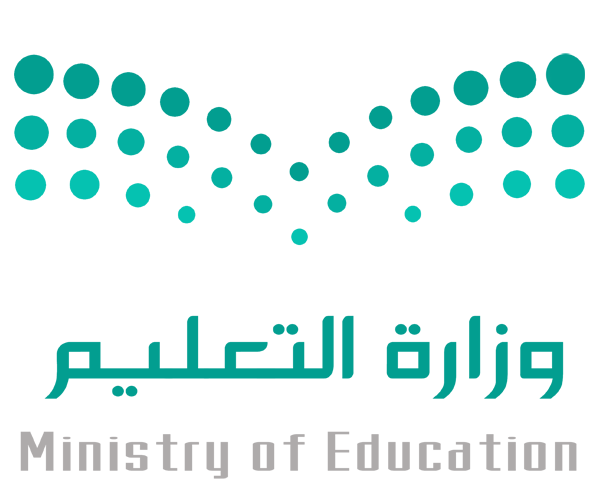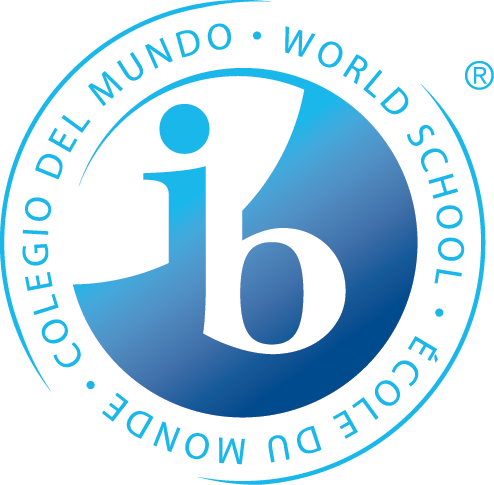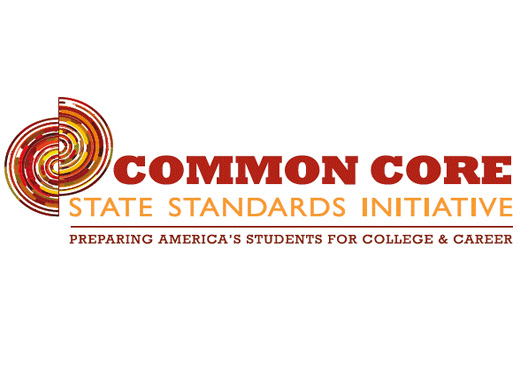
The school follows the Common Core Standards (CCS)
The standards are designed to be robust and relevant to the real world, reflecting the knowledge and skills that our young people need for success in college and careers. With the standards our students will be fully prepared for the future, our communities will be best positioned to compete successfully in the global economy.
Building on the excellent foundation of standards states have laid, the Common Core State Standards are the first step in providing our young people with a high-quality education. It should be clear to every student, parent, and teacher what the standards of success are in every school.
The Common Core State Standards focus on core conceptual understandings and procedures starting in the early grades, thus enabling teachers to take the time needed to teach core concepts and procedures well—and to give students the opportunity to master them. With students, parents and teachers all on the same page and working together for shared goals, we can ensure that students make progress each year and graduate from school prepared to succeed in college and in a modern workforce. Using the common core curriculum evens the educational field for all students in and outside the country.
This cohesive curriculum would also ensure that our students are taught all necessary skills to get into universities and colleges of their choice inside and outside of the Kingdom, Europe, American, Middle East, Asia and other countries where American diplomas are accepted.
Among all the schools in Saudi Arabia,
By this spirited step, we will be connected locally and internationally with the family of IB world schools.
Founded in 1968, the International Baccalaureate® (IB) is a non-profit educational foundation offering four highly respected programs of international education (PYP,MYP,DP,CP) that develop the intellectual, personal, emotional and social skills needed to live, learn and work in a rapidly globalizing world.
Teaching and learning in the IB celebrates the many ways people work together to construct meaning and make sense of the world. Through the interplay of asking, doing and thinking, this constructivist approach leads towards open, democratic classrooms.
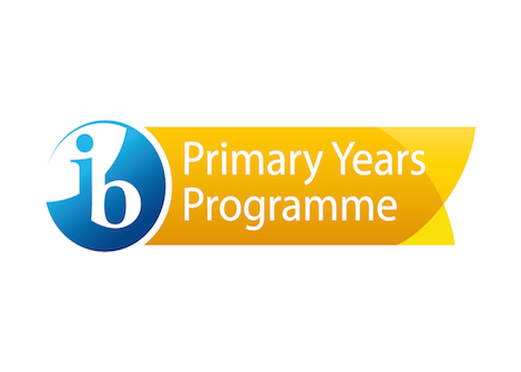
PYP will ensure that the school, students, and parents move together in a rewarding and rich learning journey that will allow all learners to express and discover themselves within the IB LEARNER PROFILE:
Inquirer
Inquirer
We nurture our curiosity, developing skills for inquiry and research. We know how to learn independently and with others. We learn with enthusiasm and sustain our love of learning throughout life.
Communicators
Communicators
We express ourselves confidently and creatively in more than one language and in many ways. We collaborate effectively, listening carefully to the perspectives of other individuals and groups
Thinkers
Thinkers
We use critical and creative thinking skills to analyse and take responsible action on complex problems. We exercise initiative in making reasoned, ethical decisions.
Knowledgeable
Knowledgeable
We develop and use conceptual understanding, exploring knowledge across a range of disciplines. We engage with issues and ideas that have local and global significance.
Principled
Principled
We act with integrity and honesty, with a strong sense of fairness and justice, and with respect for the dignity and rights of people everywhere. We take responsibility for our actions and their consequences.
Reflective
Reflective
We thoughtfully consider the world and our own ideas and experience. We work to understand our strengths and weaknesses in order to support our learning and personal development.
Balanced
Balanced
We understand the importance of balancing different aspects of our lives-intellectual, physical, and emotional-to achieve well-being for ourselves and others. We recognize our interdependence with other people and with the world in which we live.
Open-minded
Open-minded
We critically appreciate our own cultures and personal histories, as well as the values and traditions of others. We seek and evaluate a range of points of view, and we are willing to grow from the experience.
Risk-takers
Risk-takers
We approach uncertainty with forethought and determination; we work independently and cooperatively to explore new ideas and innovative strategies. We are resourceful and resilient in the face of challenges and change.
Caring
Caring
We show empathy, compassion and respect. We have a commitment to service, and we act to make a positive difference in the lives of others and in the world around us.
Primary Years Programme..
Primary Years Programme..
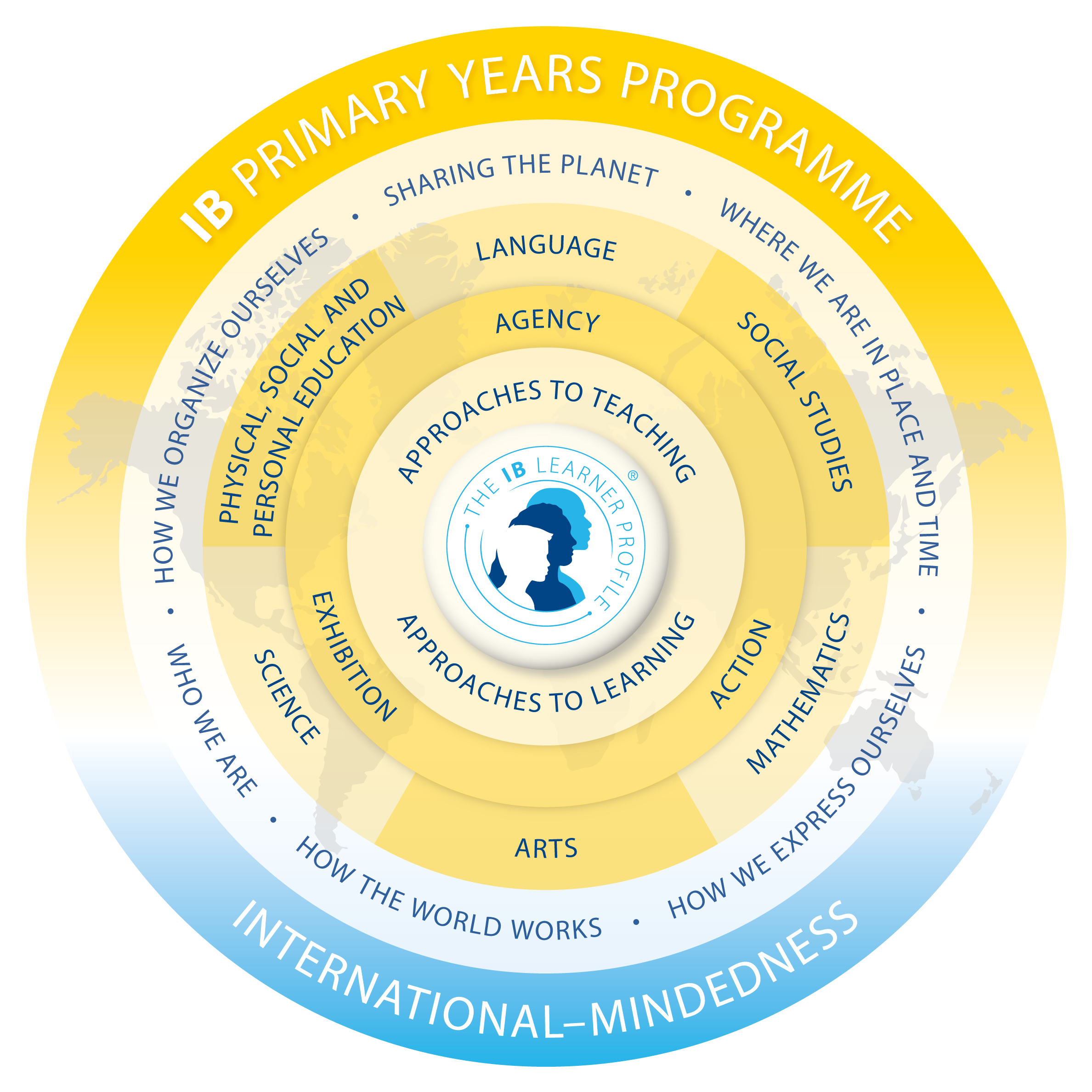
The Six Transdisciplinary Themes in (PYP):Who we areWhere we are in place and timeHow we express ourselvesHow the world worksHow we organize ourselvesSharing the planet
- How We Are
- Where We Are in Place and Time
- How We Express Ourselves
- How the World Works
- How We Organize Ourselves
- Sharing the Planet

